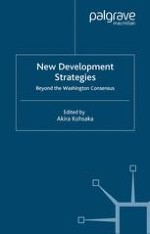2004 | OriginalPaper | Chapter
Political and Institutional Lessons from the Asian Financial Crisis
Author : Stephan Haggard
Published in: New Development Strategies
Publisher: Palgrave Macmillan UK
Included in: Professional Book Archive
Activate our intelligent search to find suitable subject content or patents.
Select sections of text to find matching patents with Artificial Intelligence. powered by
Select sections of text to find additional relevant content using AI-assisted search. powered by
The debate on the Asian financial crisis followed a curious path in the United States. Paul Krugman (1998) wrote an early theoretical analysis that emphasized the role of moral hazard and ‘crony capitalism’. This theme was reflected in a number of journalistic accounts and US policy pronouncements. But Krugman changed his mind (in 1999). He and other analysts gradually moved away from the political economy of the crisis and towards one of three different foci: the macroeconomic and exchange rate policies that left countries vulnerable to shocks; the vulnerabilities associated with high corporate leveraging and weak financial sectors; and the international dimensions of the crisis. This last cluster of issues included the costs of capital account liberalization, the role of contagion and a particularly heated debate on whether the IMF had eased or exacerbated the crisis (Stiglitz, 2002).
